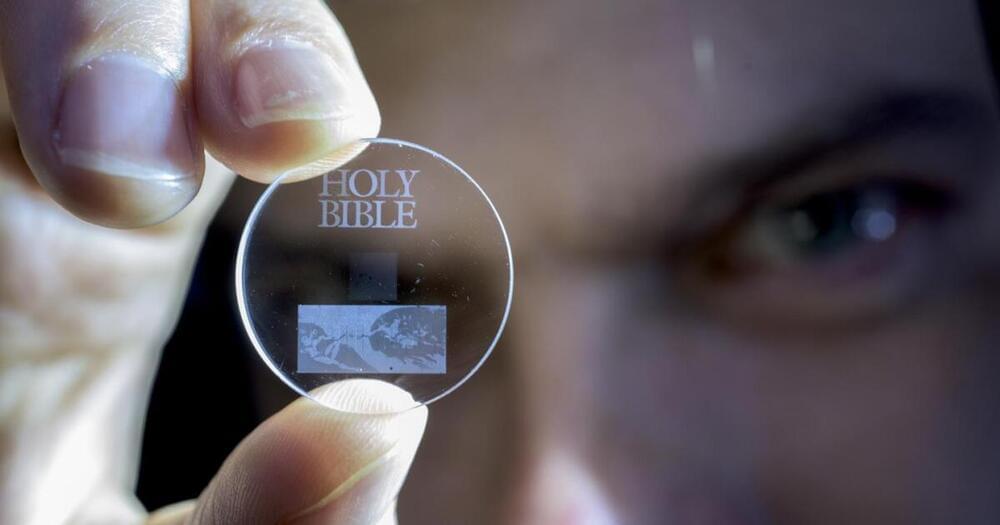Scientists at the University of Southampton have achieved a data storage breakthrough, offering intense density and long-term archiving capabilities. With this new data storage, you can easily store up to 500 terabytes on a single CD-sized disc. Whether the data is information from museums and libraries to a person’s DNA records, it can store it all and much more!
This technology is known as five-dimensional (5D) optical storage and was first demonstrated back in 2013 when scientists were successful in using it to record and retrieve a 300-kb text file. It might not seem like much, but at that time, it was a breakthrough in data storing technologies just like how floppy discs played the same part some thousand years ago.
The data is written using a femtosecond laser which emits short but powerful pulses of light, forging tiny structures in glass that are measured in nanoscale. These structures contain information on the intensity and polarization of the laser beam in addition to the 3D space, hence it is referred as 5D data storage.









The world needs highly efficient forms of data storage for media content with high capacity, low power consumption and long lifespan. In particular, storing 5D data in glasses may be required in national archives, museums, libraries or private institutions.